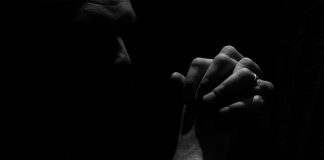Change and stability in religion
Professor Bailey V. Gillespie, from La Sierra University's Department of Theology and Christian Character in California, impressed me with both the diversity of his interests and his prestigious achievements, particularly in the field of young people's religious experience.
The primary message
How do we discover the intention of the biblical author—and how important is it in interpreting the Bible correctly?
An encounter with kindness
Sartre may have been right when he said Hell is other people. Yet, for some, their first step toward Heaven is meeting the God who shelters in someone else's soul.
Why our neighbour is the key to understanding God
I have always been fascinated by God. And yet, I believe I could have known Him far better—much more deeply—if only I had better understood what He sought to teach me each day, including through my neighbour.
The testament of Jesus
We experience a feeling of urgency as a consequence of the fear of failure, or the fear of missing out (on people, opportunities, time, good things). Urgency is, therefore, a corollary of fear. Today’s Christianity, hailed by loud voices as near extinction, can easily fall into the trap of undue urgency to quickly regain what has been lost.
The shadow of the throne
In the heart of the most powerful man in Judea, a greater fear than any other was born: the fear of losing control. Herod's story could be our story.
How should I apologise?
Asking for forgiveness is one of the most dignified things a person can do when they have done something wrong. But asking God for forgiveness is more than that: it's bowing down to the highest authority, and it's also appeasing the Infinite. What do we need to know when we ask God for forgiveness?
Actors in a divine plan
At the appointed time in the plan of salvation, Christ was sent to us: "When the set time had fully come, God sent His Son, born of a woman, born under the law..." (Galatians 4:4).
The culture of blasphemy
According to its creators, "JC" was to be a 30-minute-per-episode animated series about Jesus Christ who wanted to escape the overwhelming shadow of his father and live as an ordinary man in New York. The project was developed by comedian and writer John Michaelson. However, due to the controversial nature of the subject matter, only the pilot was produced and filmed, and it...
“The Scandal of Grace” | A God who forgives (even) murderers
Contemplating a God who forgives any sin, no matter how monstrous, can be a stumbling block to those who believe there must be some reasonable limits to forgiveness. But it is also a reason for hope for those who might otherwise feel too sinful to seek Him.
The Waldenses | The poor of Christ
The “poor of Christ”, the “poor of Lyon” or, simply, the “brothers” never called themselves “Waldenses” until they joined the Reformation. The derisive appellative was given to them by their persecutors, after the name of the man who consolidated the doctrine of the community.
Beyond what the eyes can see
There are times when we feel that life is hard and that some challenges are beyond our power. But when we look around us, at people like Ben Underwood, we realise that we are not only unaware of the gifts we have been given, but also of the immense power to enjoy life even when those gifts are denied us.
The end of the world according to Christianity
The idea of the end of the world refers to the end of the social order and humanity; the end of the planet as we know it. But according to the Bible, these will not all come at once.
What religion has to say about anxiety
A cold flash, like the strange, icy feeling after a burn, runs through his body with every breath. He feels his heart racing. It feels like it is counting down to the moment when it will explode—or, mercifully, to the moment when he will turn his pillow to the cooler side, and finally fall asleep.
The myth of myths | Is religion just a collection of myths?
The diversity and divergence of religious beliefs clearly indicate that not all religious doctrines and perspectives can be true. Throughout history, there have been vastly different universal religions, each with multiple interpretations and denominations. We have religions, not just “religion.” However, if there is one true religion that respects truth, freedom, and intelligence, the myth of myths collapses.


























